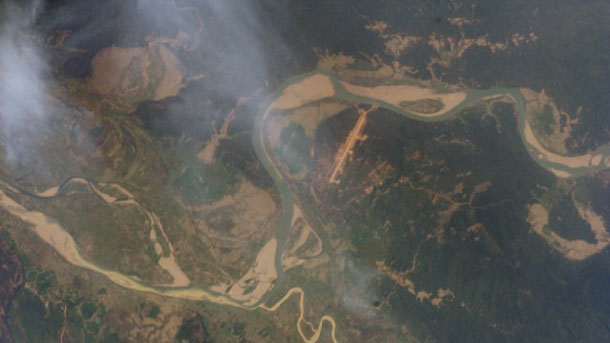Six gold-mining companies have suspended their operations in two villages in northern Burma after government officials ordered the move pending a decision in a lawsuit filed by local farmers claiming that the companies had contaminated their land.
“The government officials told the companies to stop mining on May 22, and the next day they halted operations,” said Phoe Phyu, a lawyer acting as a legal consultant for the plaintiffs.
A petition had been filed with a court in Homalin Township, Sagaing Division, on May 11 to order a temporary injunction on the companies’ activities, said Phoe Phyu, but no action was taken until Tuesday, when senior officials from the Ministry of Mines and the Sagaing Division government intervened.
The plaintiffs in the case are 12 ethnic Shan farmers who said that water discharged by the mines contained mercury that had contaminated more than 120 hectares (300 acres) of farmland, making most of it unfit for agricultural use.
The farmers had requested a halt to the companies’ activities under Section 55 of the Specific Relief Act of 1877, a colonial-era law amended in 1954 that allows the court to issue injunctions in cases involving disputes over property rights.
“The farmers’ livelihoods were badly affected as their land has been destroyed by the buildup of sand and small stones, as well as by the mercury-contaminated effluent,” Phoe Phyu told The Irrawaddy on Thursday.
The six mining companies—Swan Htet Win, Aung Tai San, Shwe Wadee, Ngu War Win Shwe, Htay Win Htun and Shwe Taung Gyar—began working in the villages of Tonekhan and Naung Taw in Homalin Township six months ago.
The villages are located near the confluence of the Chindwin River, the largest tributary of the Irrawaddy River, and the Uyu River, a major tributary of the Chindwin.
According to the villagers, the mining companies discharged polluted water into the Uyu River and Hwae Phala Lake in Tonekhan after using it to process extracted ore.
Now that the companies have left, the farmers say they will resume working on land that can still be used for cultivation. However, they some of the soil has been irreparably damaged by mercury contamination.
“I will continue helping the farmers to get compensation for their losses,” said Phoe Phyu.
















